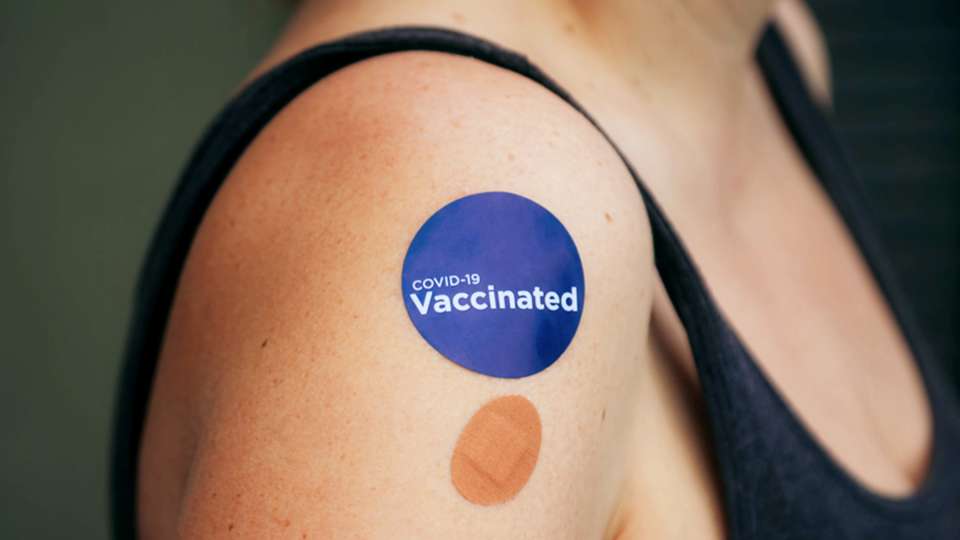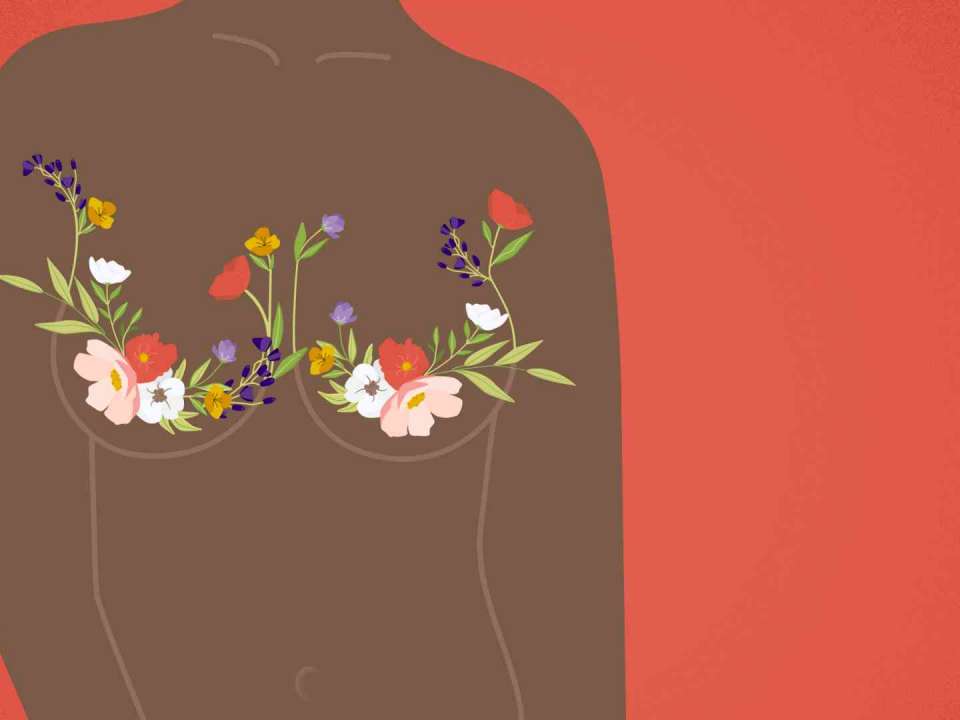
You scored the appointment. You got the shot. You took the vaccine card selfie.
Now you’re back at home, frantically Googling what’s normal and what’s not after getting your COVID-19 vaccine.
Well, it’s time to stop the doomscrolling.
Dr. Paul Pottinger, director of the Infectious Diseases and Tropical Medicine Clinic at UW Medical Center – Montlake, is here to set the record straight on what to expect after you get vaccinated.
Can you exercise or drink alcohol after the COVID-19 vaccine?
After getting your shot, there are zero restrictions on the sorts of activities you can do.
That means you’re free to get in your workout, sip that latte and enjoy a celebratory glass of wine. Just pay attention to how your body feels and go from there.
“These immunizations are safe, and you can do whatever you wish after you’re immunized,” Pottinger says. “You may not necessarily be in the mood to do much that’s active, like running a marathon, but if you choose to do so it certainly would be safe.”
Can you take pain medication after the COVID-19 vaccine?
Although the Centers for Disease Control and Prevention (CDC) recommends you avoid taking over-the-counter pain medicine prior to your COVID-19 vaccine appointment, the same does not apply after your shot.
So if you want to take an ibuprofen to help your sore arm feel better, go for it. That said, most side effects are mild enough and will pass on their own without the need for any treatment, Pottinger says.
As for other types of supplements or medications you might regularly take, like a multivitamin or allergy pills, feel free to continue using them, too.
What if you don’t have any side effects after the COVID-19 vaccine?
You’ve probably heard a lot about the potential side effects of a COVID-19 vaccine, but Pottinger says not everyone experiences them.
If that’s you, don’t worry. The vaccine is still working even if you feel perfectly normal after your shot.
“This does not necessarily mean that you’re failing to mount a good immune response,” Pottinger explains.
How long do side effects last after the COVID-19 vaccine?
On the flipside, you may be in the group of people who experiences some side effects after getting vaccinated.
The most common ones include a sore arm where you got your shot, fatigue, headache and general aches and pains, while others might be nausea and fever.
Some of these side effects, like soreness at the injection site, may start on the same day as your shot and last for a few days after. Others may not appear until the next day or so.
“For most people who have generalized symptoms such as fatigue and aches and pains, that tends to happen one to two days after the injection and to last for one to two days after it starts,” Pottinger notes.
Will your side effects be worse after the second dose of the COVID-19 vaccine?
If you’re getting the Pfizer or Moderna vaccines, which require two doses, you might have heard that the side effects are worse after the second shot — potentially a sign that your body is mounting a robust immune response.
This does happen to some people but isn’t true for everyone, Pottinger says.
“We’re not able to predict who will have symptoms or how severe they will be,” he explains.
If you’re worried about how you’ll be affected the second time around, keep in mind that most side effects will go away within a few days. And even if those aches and pains do feel more intense the second time around, it’s still important to get both doses so you’re fully protected from the disease.
What side effects are not normal after a COVID-19 vaccine?
Time to address the elephant in the room. With the recent pause (and subsequent restarting) of the Johnson & Johnson vaccine, you might be feeling extra worried about getting vaccinated.
Despite the headlines, abnormal side effects are incredibly rare, Pottinger says.
“For people who have received Johnson & Johnson, there is approximately a one in 1 million chance that someone may develop a blood clot after they receive that product,” he explains.
Still, if you’re concerned, these are the abnormal side effects to watch out for within three weeks of getting your shot: chest pain, difficulty breathing, a severe headache, leg pain or leg swelling.
If you experience any of these symptoms — or are worried for any reason about your side effects — contact your doctor or seek medical care right away, just as you always would regardless of getting vaccinated.
Can you do anything to reduce your COVID-19 vaccine side effects?
Maybe you’ve read that doing push-ups or windmilling your arm will help with that post-shot arm soreness, but the truth is there’s no trick to preventing or reducing your side effects.
“Exercise can make the shoulder feel worse at the injection site,” Pottinger says. “Likewise, I would not recommend that people get a deep muscle massage after they have been injected — this can just cause more soreness.”
He says other tips like using a cold compress on your arm also aren’t necessary, but you’re welcome to try it if you feel like it helps.
Instead, your best bet is to take it easy for a day or two. If your pain feels substantial, you can also take an over-the-counter pain medicine.
Will the COVID-19 vaccine affect your period or fertility?
While there have been some reports of people experiencing irregular periods after receiving the COVID-19 vaccine, there’s no reliable scientific evidence to support this yet.
That said, your period may be affected by other factors unrelated to the vaccine itself, such as feeling stressed or having disrupted sleep.
“Onset of menses may be thrown off someone’s usual rhythm for a variety of reasons,” Pottinger explains. “If this happens after vaccination, I would expect things to get back to usual the following month.”
As for the vaccine negatively affecting your fertility, pregnancy or ability to breastfeed, well, that’s a total myth.
“In fact, we are happy now to have recommendation from the CDC in favor of immunizing all pregnant women against COVID-19, because it is safe and because pregnant women are at increased risk of death compared with non-pregnant women,” Pottinger says.
What should you do if you test positive for COVID-19 between vaccine doses?
If you happen to test positive for COVID-19 after receiving your first shot but before receiving your second one, you can still get that second shot on time, but you’ll probably want to adjust your vaccine timetable.
You should wait until you no longer have symptoms and are out of the isolation period to return for your second shot.
Once you’re recovered, though, it’s still important to get your second dose to ensure you’re fully protected.
The bottom line
While the current COVID-19 vaccines were developed in record time, they went through the same safety steps and clinical trials that all other vaccines do.
In other words, they’re safe.
As for side effects, well, you won’t know how you’ll be affected until you get your shot.
“Not everyone gets side effects, but if you do, you should know that they are generally mild and self-limited,” Pottinger says. “That’s a small price to pay to enjoy the safety benefits of immunization.”
The info in this article is accurate as of the publishing date. While Right as Rain strives to keep our stories as current as possible, the COVID-19 pandemic continues to evolve. It’s possible some things have changed since publication. We encourage you to stay informed by checking out your local health department resources, like Public Health Seattle King County or Washington State Department of Health.

 Healthy ideas for your inbox
Healthy ideas for your inbox





